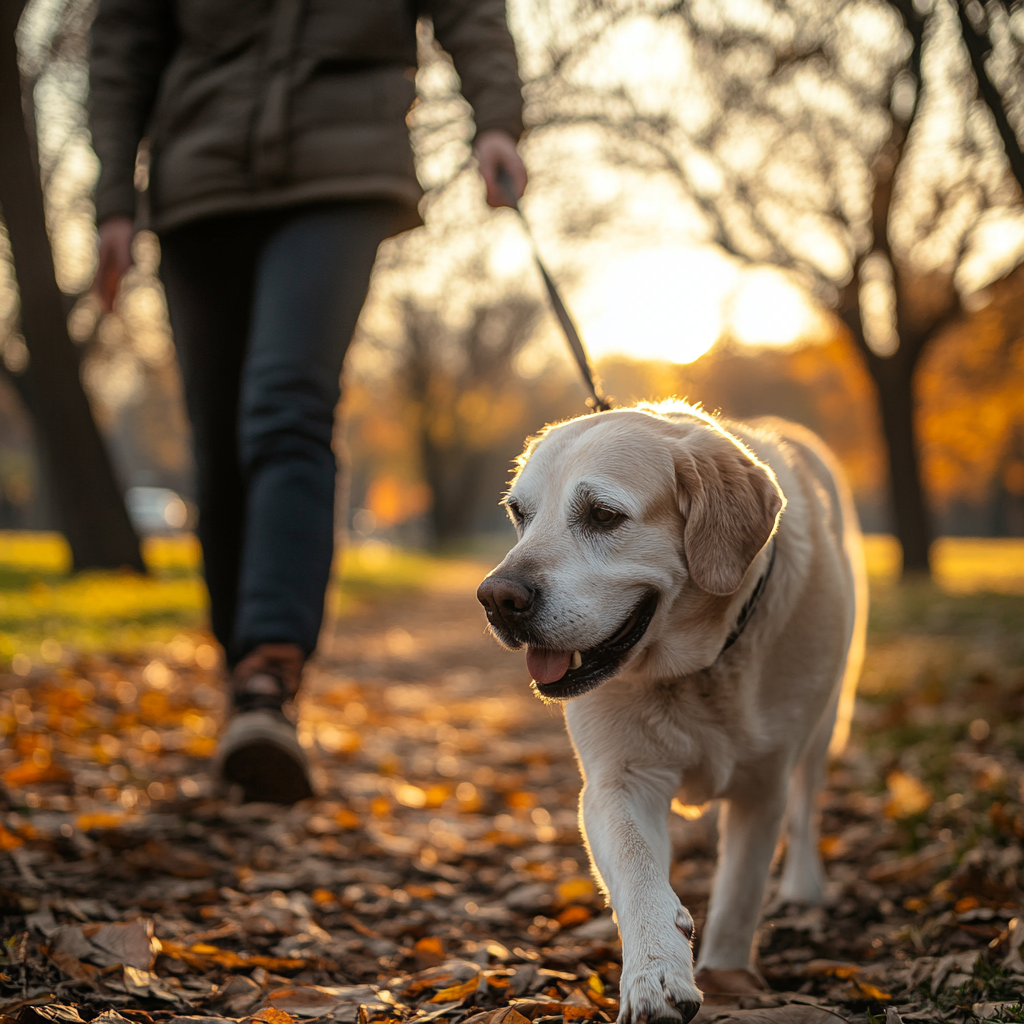Adopting a senior dog can be a rewarding experience, but it comes with its own unique challenges. Learn what to expect, including health care, emotional needs, and tips for a successful transition.
What to Expect When Adopting a Senior Dog
Adopting a senior dog is an incredibly rewarding experience, but it can also present unique challenges that potential dog parents may not anticipate. Understanding what to expect when adopting a senior dog helps ensure that you’re fully prepared for the adjustments required to make the transition smooth and successful. Whether you’re a first-time dog owner or adding a senior dog to your family, this guide will provide the essential insights you need.

In this article, we will explore everything you should know, from the initial decision-making process to the practical and emotional aspects of adopting an older dog. By the end, you’ll have a clear idea of how to make your home a loving, comfortable place for your new senior companion.
Table of Contents
- Why Adopt a Senior Dog?
- What to Expect When Adopting a Senior Dog: Initial Considerations
- Health Considerations for Senior Dogs
- Behavioral Changes in Senior Dogs
- How to Prepare Your Home for a Senior Dog
- Providing the Best Care for a Senior Dog
- Senior Dog Nutrition and Diet Tips
- How to Establish a Routine with a Senior Dog
- Training and Socialization Tips for Senior Dogs
- Common Myths About Adopting Senior Dogs
- Emotional Needs of Senior Dogs
- Final Thoughts on Adopting a Senior Dog
Why Adopt a Senior Dog?
Adopting a senior dog is one of the most selfless acts of love you can offer an animal in need. Many people gravitate toward puppies when adopting a new pet, but senior dogs offer some unique benefits. Adopting a senior dog is a perfect choice for those who want a calmer, more predictable companion.
Benefits of Adopting a Senior Dog
- Less Training Required: Senior dogs usually have established behaviors, meaning less time spent on housebreaking or basic obedience training.
- Calmer Temperament: Older dogs are generally less hyperactive, making them ideal companions for families, singles, or seniors.
- Gratitude and Bonding: Senior dogs often form deep, lasting bonds with their new families, appreciating the love and care they receive.
What to Expect When Adopting a Senior Dog: Initial Considerations
Before deciding to adopt a senior dog, there are a few important factors to consider. First, it’s important to evaluate whether you’re ready for the responsibilities of caring for a senior pet, which may have special needs. Keep in mind that some senior dogs have health concerns, including arthritis, hearing loss, and vision impairments.
Health Considerations for Senior Dogs
One of the biggest factors to consider when adopting a senior dog is their health. As dogs age, they often face health challenges that require extra care. Regular visits to the vet become even more critical.
Common Health Issues in Senior Dogs
- Arthritis: Many senior dogs experience joint pain and stiffness, which may limit mobility.
- Dental Disease: Dental issues are common in older dogs and may require professional cleaning or extraction.
- Vision and Hearing Loss: These changes are often gradual and may require some modifications to how you communicate with your pet.
- Kidney Disease and Cancer: Senior dogs are more susceptible to certain diseases, which is why regular checkups are so important.
Behavioral Changes in Senior Dogs
Senior dogs may also experience changes in behavior, and it’s essential to understand what to expect. As they age, dogs might become more independent, less active, or even more affectionate as they seek comfort and reassurance.
What Behavioral Changes Can You Expect?
- Increased Resting: As dogs get older, they tend to sleep more, and their energy levels can decrease.
- Slower Movement: Joint stiffness may cause your dog to move slower or hesitate when jumping or climbing stairs.
- Possible Cognitive Decline: Just like humans, dogs can suffer from canine cognitive dysfunction (CCD), leading to confusion or disorientation.
How to Prepare Your Home for a Senior Dog
When preparing your home for a senior dog, it’s important to make adjustments to ensure that your living environment is safe and accessible for your new companion. Consider making changes to their routine and surroundings to accommodate any physical limitations.
Key Adjustments to Make Your Home Senior-Dog-Friendly
- Ramp or Steps: If your dog struggles to jump onto furniture or into the car, consider investing in a ramp or pet steps.
- Non-slip Rugs: To prevent slipping on hard floors, use rugs or mats to create a safer walking surface.
- Comfortable Bed: Ensure that your dog has a soft, supportive bed that accommodates any joint pain they may experience.
Providing the Best Care for a Senior Dog
Providing exceptional care for your senior dog involves both emotional and physical well-being. Senior dogs need extra love, attention, and specialized care to thrive in their golden years.
Physical Care Tips for Senior Dogs
- Exercise Regularly: While senior dogs may not be as energetic as they once were, it’s still important to provide regular, gentle exercise.
- Monitor Weight: Weight management is crucial, as excess weight can exacerbate health problems like arthritis.
- Manage Pain: Talk to your vet about medications or supplements that can help with pain management.
Senior Dog Nutrition and Diet Tips
A senior dog’s nutritional needs differ from those of a younger dog. Specialized senior dog food can help address issues like joint health, weight management, and digestive health.
Important Dietary Considerations
- Joint Support: Look for foods rich in omega-3 fatty acids and glucosamine to help maintain joint health.
- Weight Management: Many senior dogs are less active, so you may need to adjust their caloric intake to prevent obesity.
- Digestive Health: Choose high-fiber foods that aid in digestion, especially if your dog has a sensitive stomach.
How to Establish a Routine with a Senior Dog
Establishing a consistent routine is essential for a senior dog’s well-being. This will help them feel secure and understand what to expect each day.
Key Aspects of a Senior Dog’s Routine
- Regular Feeding Schedule: Consistency in meal times is crucial.
- Routine Walks: Even though your senior dog may not be able to walk as far, daily strolls are important for mental stimulation and light exercise.
- Dedicated Rest Time: Ensure that your senior dog has a quiet, comfortable space to rest and recover.
Training and Socialization Tips for Senior Dogs
Training and socialization are still important for senior dogs, even though they may have lived a portion of their lives with established habits.
Training Tips for Senior Dogs
- Positive Reinforcement: Use treats and praise to encourage desirable behaviors.
- Patience: Older dogs may take longer to adjust to new commands or routines, so patience is key.
- Socialization: Even though senior dogs may be more set in their ways, it’s still important to expose them to new experiences, sounds, and people.
Common Myths About Adopting Senior Dogs
There are several myths surrounding the adoption of senior dogs, and it’s important to dispel these misconceptions to make informed decisions.
Myth 1: Senior Dogs Are Too Set in Their Ways
This is a common myth. While senior dogs may have established habits, they are often adaptable and eager to bond with a new family.
Myth 2: Senior Dogs Don’t Have Much Time Left
Many senior dogs can live for several more years, especially with proper care and attention.
Emotional Needs of Senior Dogs
Senior dogs require emotional care just as much as they need physical care. As dogs age, they often seek comfort, security, and affection. Being mindful of their emotional needs will help ensure a happy and healthy life in their senior years.
How to Address Your Senior Dog’s Emotional Needs
- Offer Reassurance: Senior dogs may feel more vulnerable, so providing comfort through cuddling and attention is essential.
- Reduce Anxiety: Keep their environment stable and calm, and try to minimize stressors.
- Engage in Bonding Activities: Simple activities like petting, talking, and spending quality time together can strengthen your bond.
Final Thoughts on Adopting a Senior Dog
Adopting a senior dog can be one of the most fulfilling experiences of your life. While they may come with challenges, they also offer unmatched companionship and loyalty. By understanding what to expect when adopting a senior dog, you can make their transition into your home as smooth as possible, providing them with a loving and comfortable environment for their golden years.
For more pets related articles, click here: https://ledstk.com/category/pets/
For recipes lovers, see here: sotastyrecipe.com
